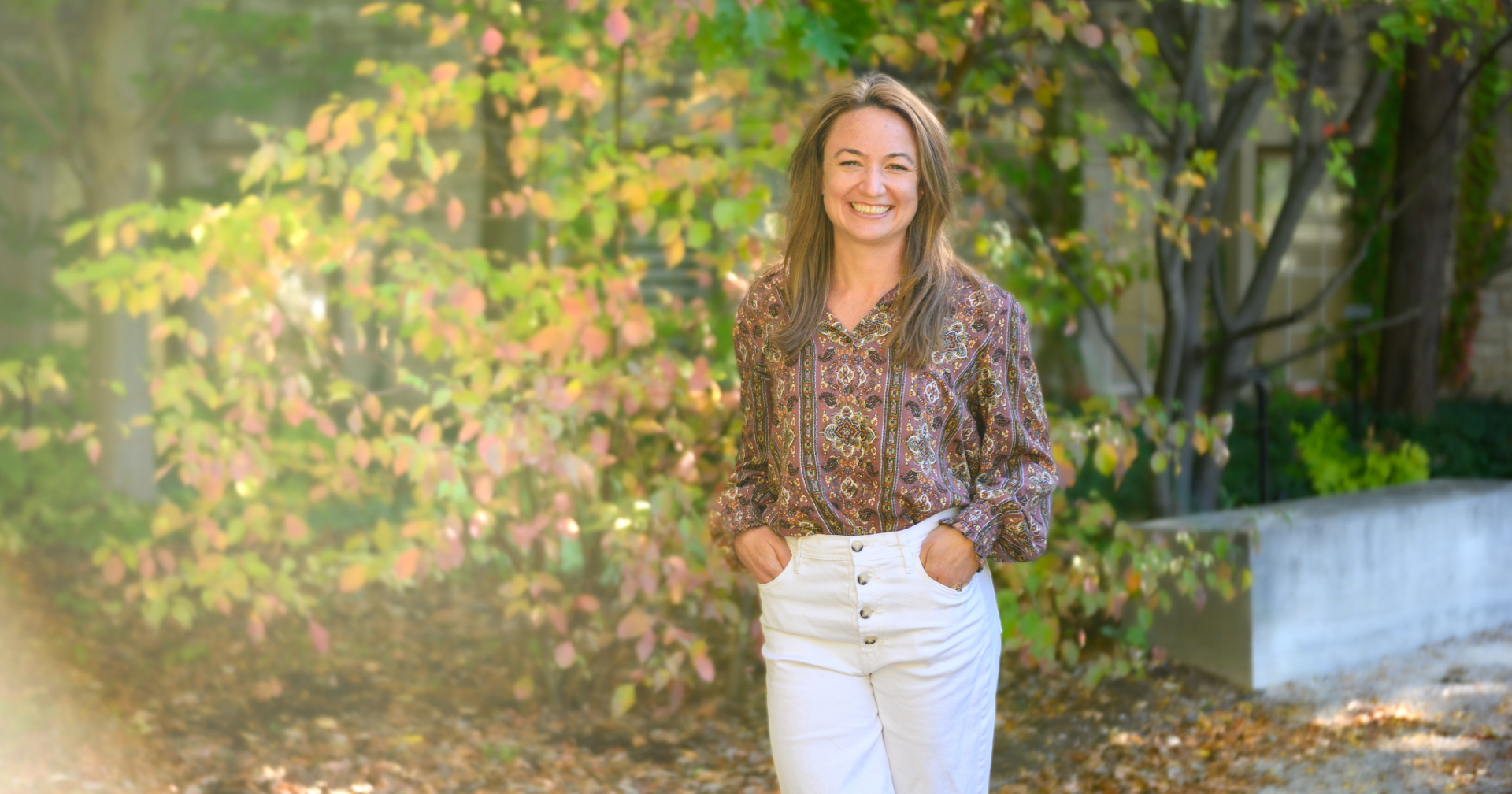Education
Neuroscientist Breanne Kearney Examines Trauma and Memory

A transformative journey in neuroscience culminates this month for Breanne Kearney, who graduates from Schulich Medicine & Dentistry with a PhD in neuroscience. Her research focuses on how trauma affects the brain’s sensory-motor networks, particularly in adults living with post-traumatic stress disorder (PTSD). Kearney’s groundbreaking work has earned her the Governor General’s Gold Medal for outstanding academic achievement.
Kearney’s interest in neuroscience was ignited unexpectedly while studying for her master’s degree at University College London. Initially trained as an occupational therapist at the University of New Hampshire, she spent six years working with children and adolescents facing neuro-developmental challenges. An email to prominent researcher Dr. Ruth Lanius set her on the path to her current research, aimed at understanding the body’s memory of trauma.
Exploring the Body’s Memory of Trauma
Kearney’s research examines how trauma manifests physically in the body. Many individuals with traumatic experiences report sensations such as tension or pain that seem to correlate with memories of their trauma. Kearney stated, “Many people with trauma feel it in their bodies – tension, pain or visceral unease. We wanted to know what parts of the brain correspond with this sense of reliving things somatically in the body.” Utilizing functional MRI technology, she investigates the brain’s responses in these scenarios.
Another aspect of her research includes studying an innovative psychotherapy known as deep brain reorienting. This therapy aims to address the immediate, reflexive responses to trauma that occur before conscious thoughts or emotions emerge. Kearney explained, “This therapy focuses on the shock response from the lowest part of the brain, before any thoughts or feelings. It backs things up to a very early sensory motor response.” Initial clinical trials have indicated that this approach may offer significant benefits, particularly for those who have not found relief through traditional therapies.
A Multifaceted Career and Future Aspirations
Raised in Long Island, NY, Kearney’s early career was shaped by her experiences with children facing various challenges. Her transition into neuroscience was influenced by her passion for understanding the complexities of the brain. “The more I’m involved in research and the more I learn about the brain, I realize how little we actually know,” she remarked. “That’s what is so cool about science. It forces you to be comfortable with the unknown.”
As Kearney completes her doctorate, she plans to continue her research at Schulich Medicine & Dentistry as a postdoctoral scholar while also pursuing the final stages of her licensure in Canada. She aims to balance her time between research and practical therapy, recognizing the value of direct patient interaction in enriching her understanding of trauma and recovery. “I’m passionate about having a foot in research while still keeping myself in the reality of seeing people in the clinic. It just gives me such a richer understanding,” she said.
Kearney’s commitment to her work, particularly with children, underscores her belief in the importance of integrating clinical practice with scientific inquiry. As she embarks on this next chapter, her research promises to contribute significantly to the understanding of trauma and its effects on the human brain.
-

 Science3 months ago
Science3 months agoToyoake City Proposes Daily Two-Hour Smartphone Use Limit
-

 Top Stories3 months ago
Top Stories3 months agoPedestrian Fatally Injured in Esquimalt Collision on August 14
-

 Health3 months ago
Health3 months agoB.C. Review Reveals Urgent Need for Rare-Disease Drug Reforms
-

 Technology3 months ago
Technology3 months agoDark Adventure Game “Bye Sweet Carole” Set for October Release
-

 World3 months ago
World3 months agoJimmy Lai’s Defense Challenges Charges Under National Security Law
-

 Lifestyle3 months ago
Lifestyle3 months agoVictoria’s Pop-Up Shop Shines Light on B.C.’s Wolf Cull
-

 Technology3 months ago
Technology3 months agoKonami Revives Iconic Metal Gear Solid Delta Ahead of Release
-

 Technology3 months ago
Technology3 months agoApple Expands Self-Service Repair Program to Canada
-

 Technology3 months ago
Technology3 months agoSnapmaker U1 Color 3D Printer Redefines Speed and Sustainability
-

 Technology3 months ago
Technology3 months agoAION Folding Knife: Redefining EDC Design with Premium Materials
-

 Business3 months ago
Business3 months agoGordon Murray Automotive Unveils S1 LM and Le Mans GTR at Monterey
-

 Technology3 months ago
Technology3 months agoSolve Today’s Wordle Challenge: Hints and Answer for August 19









